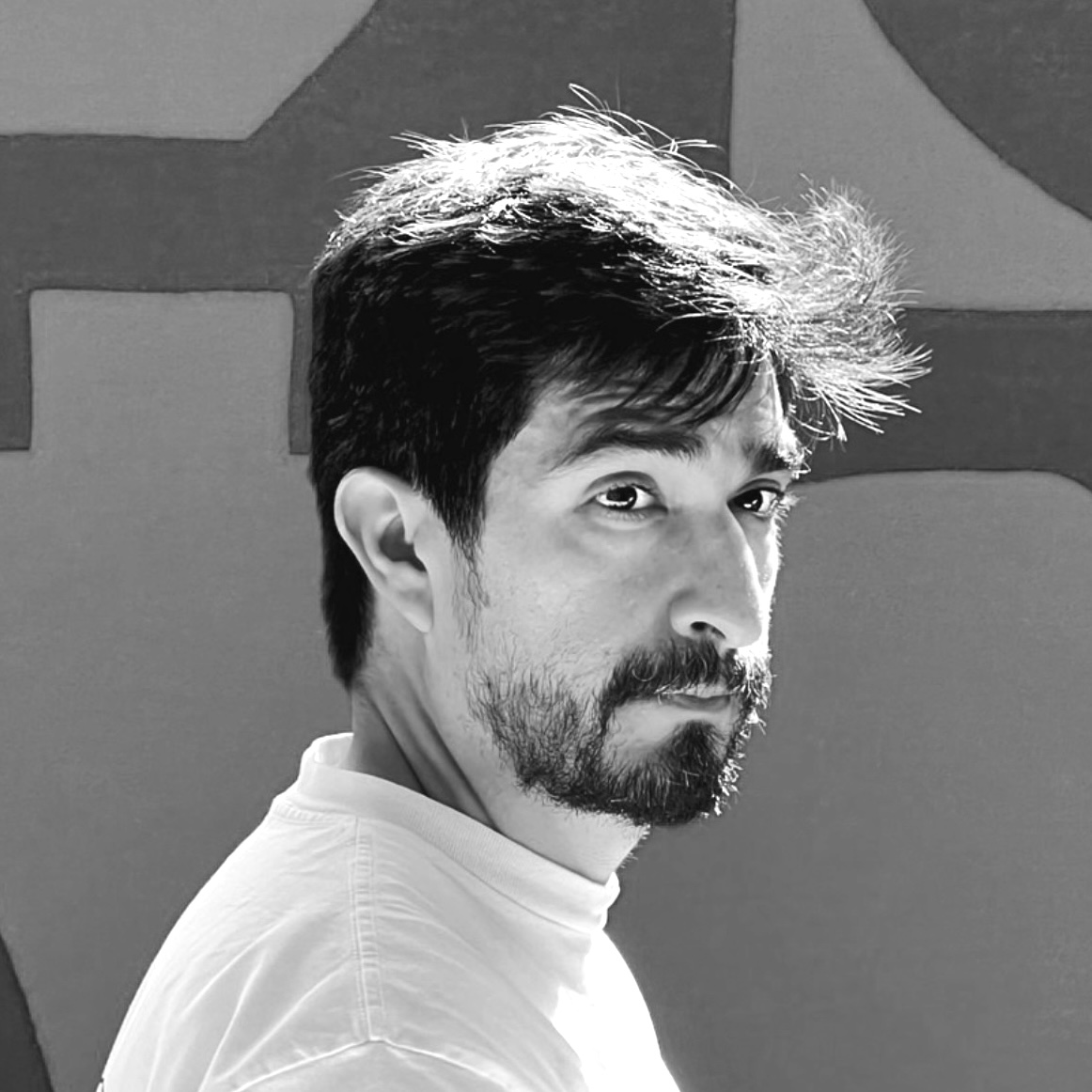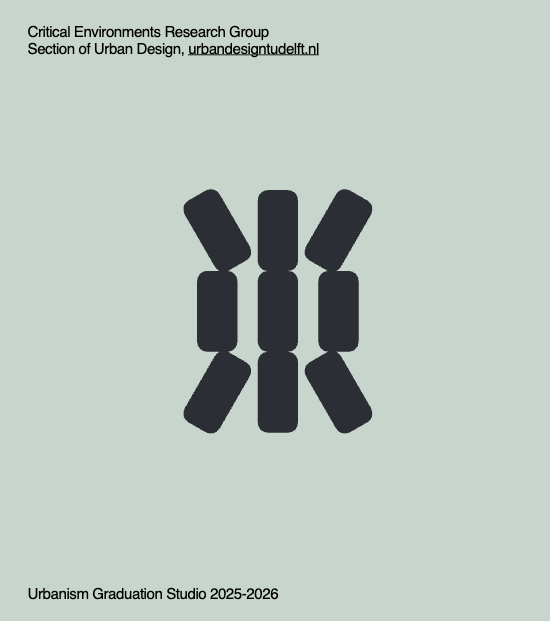Team
Critical Environments aspires to serve as a platform for intellectual exchange, collaborative knowledge production and resource commoning. It seeks to integrate design with interdisciplinary perspectives from urban and landscape theory, critical media studies, environmental humanities, environmental studies, and political ecology. Additionally, Critical Environments positions itself at the intersection of science, technology, and the arts, fostering the multiple transdisciplinary connections that emerge from this form of knowledge production.

Víctor Muñoz Sanz
Víctor Muñoz Sanz is an assistant professor of urban design at the Department of Urbanism of the Faculty of Architecture and the Built Environment, TU Delft. He conceptualises, leads, and develops critical research on the architecture and urbanism of the past, present, and future of work. Specifically, his work looks at the interplay of the design of productive landscapes with technology and management, and aims to question the role of urban design in enabling new urban economies and inclusive forms of employment.
He is the author of the books Reconnecting Cities, People and Nature: Exercises in Urban Design (with Robbert Jan van der Veen; Birkhäuser, 2025) and Una Rápida Compañera: Arquitectura y Trabajo en la Cuarta Era de la Maquina [In Fast Company: Architecture and Labor in the Fourth Machine Age] (Bartlebooth, 2024), and Foundries of the Future: A Guide for 21st Century Cities of Making (with Cities of Making; TU Delft Open, 2020), and co-editor of Automated Landscapes (Nieuwe Instituut, 2023), Roadside Picnics: Encounters with the Uncanny (dpr Barcelona, 2022), Habitat: Ecology Thinking in Architecture (nai010, 2022), and Extreme Urbanism vol. 1 and 2 (with Rahul Mehrotra; Harvard GSD, 2011 and 2012).
Víctor qualified as an architect at the School of Architecture of Madrid (ETSAM, 2006), and holds a master of architecture in urban design, with distinction, from Harvard University Graduate School of Design (2011), and a PhD cum laude in architecture from Universidad Politécnica de Madrid (2016).

Nikos Katsikis
Nikos Katsikis is an assistant professor of urban design at the Department of Urbanism of the Faculty of Architecture and the Built Environment, TU Delft. He works at the intersection of urbanization theory, territorial design, and geospatial analysis. His research seeks to contribute to a geographical understanding of the socio-metabolic relations between cities and their “operational landscapes:” non-city landscapes of primary production, circulation and waste disposal that support urban life. He holds graduate degrees in Architecture and Spatial Design from the National Technical University of Athens (2006, 2008) and a Doctor of Design from Harvard University Graduate School of Design (2016). Before joining TU Delft, Nikos was a postdoctoral researcher at the University of Luxembourg (LU), and Research Tutor at the Royal College of Arts (UK). At Harvard GSD he was lecturer at the Department of Urban Planning and Design, and research and teaching associate at New Geographies Lab and Urban Theory Lab, where he also served on the editorial board of the New Geographies journal. Nikos is co-editor of New Geographies 06: Grounding Metabolism, and the volume Positions on Emancipation, as well as co-author of the book Manhattan: Grid for Ordering an Island. His recent work includes contributions in Anthropocene Review, Architectural Design (AD), Technospheres, Harvard Design Magazine, New Geographies and MONU; book chapters in Implosions / Explosions: Towards a Study of Planetary Urbanization (ed. Neil Brenner); Doing Global Urban Research (ed. Michael Hoyler); The Horizontal Metropolis (ed. Paola Vigano); and the forthcoming books (with Urban Theory Lab) Data-spheres of Planetary Urbanization, and Environments of Planetary Urbanization.

Affiliated Faculty
Luisa Calabrese, Urban Design
Diego Sepúlveda, Spatial Planning and Strategy
Francesca Rizzetto, Urban Design
Luca Iuorio, Environmental Technology and Design
Daniela Maiullari, Environmental Technology and Design
Alex Wandl, Environmental Technology and Design
Thomas Verbeek, Urban Studies
Daniele Cannatella, Urban Data Science
Denise Piccinini, Landscape Architecture
Angela Rout, Data Design Society
Javier Arpa, Building Audiences
Remon Rooij, Spatial Planning and Strategy
Joep Storm, Civil Engineering and Geosciences